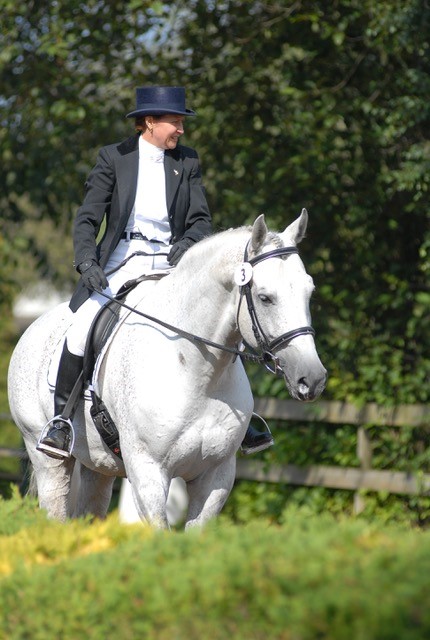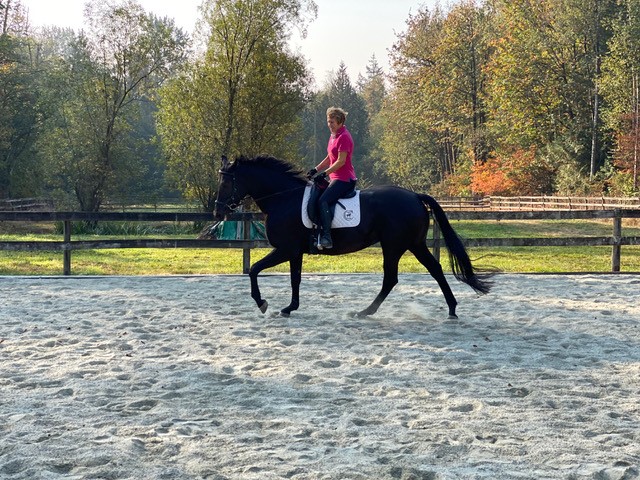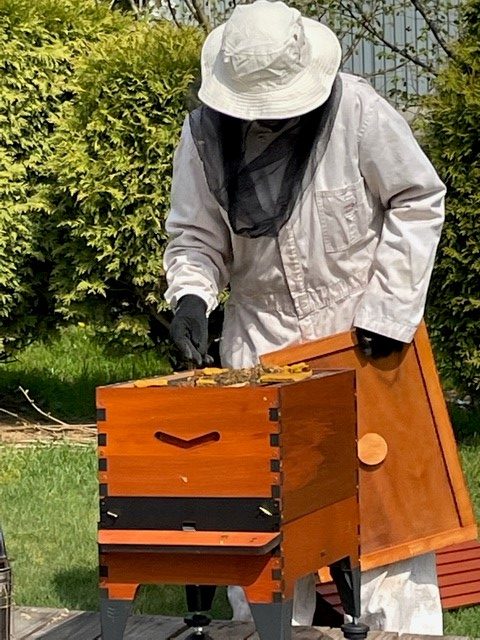Throughout their diverse and storied careers, UBC Department of Medicine faculty members acquire a wealth of clinical, educational, and leadership knowledge and skills. We value the experience of our retiring faculty and seek to capture some of their valuable insight and wisdom to share with the UBC Department of Medicine community. We hope that our current faculty will find these perspectives useful as they consider their own career paths.

Name:
Dr. Doris Doudet (She/Her/Hers)
Title:
Professor Emeritus
Department/Division:
Department of Medicine/Division of Neurology
Location:
Langley, BC
Dr. Doudet is originally from Bordeaux, France. She obtained her PhDs in Neurophysiology and in Clinical Neurology and Human Behavior at the University of Bordeaux, France, working on rodents and non-primate models of Huntington’s and Parkinson’s diseases.
Her research centers on the role of monoaminergic systems in health, disease, and therapy, with a focus in neurodegenerative diseases and mood disorders and the effect of non-invasive brain stimulation therapies. She joined the UBC/TRIUMF PET program in 1993.
After a 30-year career at UBC, Dr. Doudet retired on June 30, 2023, from the Department of Medicine in the Division of Neurology. She intends to focus her energy into her 5-acre farm in Langley, ride her horse Juniper, and pursue a new love of beekeeping while continuing to serve on various endeavors, among them, the UBC Clinical Ethics Research Board (CREB).
Where did you grow up?
My family is from the best area in France if you like food and wine, i.e., the Bordeaux area, but I was born in Geneva, Switzerland. I never applied for Swiss citizenship when I was 18, so I am French…and Canadian!
Did you have any life-changing experiences that put you on your career path?
When I was 8 or 9 years old, I was asked what I wanted to be when I grew up. I answered, “I want to study the sea, or I want to study the brain, or I want to be a vet. And if I can’t do that, I’ll be a farmer.”
In my undergrad at the University of Bordeaux, I started doing a lot of marine biology and oceanography. I discovered at that time (45+ years ago) that France was very sexist. I applied to go to Antarctica to study for nine months in a biology/oceanographic station, and they refused me even though I was the only applicant. I was very angry. I spoke to the program director, who said he would not send a woman to Antarctica for nine months with a bunch of men. The following year, I applied for a study to go on an oceanographic ship around Iceland – and trust me, I don’t like the cold – I was refused again for the same reason. I said fine, you are all sexist, so I shifted to doing neuroscience. Research in brain mechanisms was my primary interest, and I got a PhD in Neurosciences and, later on, a PhD in Applied Neurology and Behavior.
After that, I did a Fogarty Postdoctoral fellowship at NIH/NIMH with Robert Cohen and Louis Sokoloff and another fellowship with Mahlon DeLong at the Johns Hopkins School of Medicine.
What was your first job at UBC?
At UBC, I began in the Pacific Parkinson’s Research Center and used PET (Positron Emission Tomography) to study the mechanisms of some Parkinson’s disease treatments. I have also always been interested in psychiatry and stimulation therapies, and if I am ever diagnosed with a severe major depressive disorder, I would choose electroconvulsive therapy (ECT) over drugs. It has a stigma attached to it but is very safe and effective. So, I started working with the head of psychiatry at the time (Dr. Thanassis Zis), and we got a large CIHR grant to develop ECT in monkeys and assess its effects on the serotonin and dopamine systems by PET. It was a contentious time.
What has been the biggest highlight of your career at UBC?
My students’ success – especially the PhDs. They have been highly successful, and it is always very gratifying. One thing I insist on is to build a strong relationship between student and supervisor. So many supervisors move students too quickly from their Master’s into the PhD track. I have a different approach. Finish the Master’s first and ensure it’s the right supervisor, project, and environment. If it’s the right fit, then move into a PhD.
Over the years, I have counseled many students, but with the understanding that they know I won’t tell them what they want to hear. I’m going to be truthful and not sugarcoat facts unnecessarily. That’s who I am.
Who were your most important mentors?
At NIH and Johns Hopkins, I had supervisors that were great people. One was Louis Sokoloff – he was nominated several times for a Nobel Prize and should have won. He was a psychiatrist and a true gentleman. He was the type of person who, if he had students/postdocs that he thought could go far, would push them and wasn’t afraid to have them surpass him. Another was Mahlon DeLong. He is a wonderful man who supported his colleagues, associates, and students. He respected his nurses and his staff. I was blessed with great mentors and supervisors who told me to speak up, and that science is about discovery and not about getting your name in all the papers.
What advice would you have for a junior faculty member in your field?
In my field (or any field for that matter): Learn to say no—especially young women. Women tend to say yes and take on more responsibilities than is healthy for their sanity! This is where things can get overwhelming, and people can start to struggle. Learn to say no. I say this to all my students. Especially early in your career, pick tasks and committees to serve on that aren’t too time-consuming, and don’t overcommit to too many committees.
What advice might you give a senior faculty member approaching retirement?
Thirty years went quite fast and quite slow at the same time. Start thinking and planning for your retirement a few years ahead. UBC offers retirement seminars that are very good to attend. And get a few hobbies before you retire…
How do you plan on spending your retirement?

After retirement, I plan to stay on some UBC committees, including the UBC Clinical Research Ethics Board. There are so many other things I want to do.
I have a horse, Juniper, that I enjoy riding, and I may start competing again. I have started beekeeping, which is a lot of work (much more than I thought!) and takes a lot of time.
I’ll be going to see my mother in France. She is very independent. While I’m gone, a friend is coming to feed the horse, the chickens, and my cats. I have five acres of land that require a lot of work. Trust me, fixing fences and maintaining fields, among other things, is a lot of work. Having this land, my animals, and bees is lovely, but you don’t get a day off. I’ve had broken bones and still been mucking out horse stalls the next day because it needs to be done. I’m a horse person; we are tough. We don’t stop for anything.
Tell us more about the bees

I have a friend, Bill, who makes honey wine. His company is called Festina Lente. He even does a tremendous sparkling wine with honey. He had hives at my place, and I got interested.
In 2015, an Australian father and son developed a system of frames called a Flow Hive where you can collect honey easily. You still have to care for the bees, treat them for disease, and clean the boxes, but the honey collection is much easier than in a traditional hive setup. I decided to get my own hive and make my own honey.
I purchased the Flow Hive and a nucleus colony of bees and made my first batch of honey that summer. Within a month or two, I captured a couple of swarms. Swarms aren’t dangerous – the bees are only concerned for the queen and finding a new place to call home. They’re just looking for somewhere to settle and build a new hive. Wherever the queen goes, the rest follow. Over the first winter, I lost quite a few bees. I also accidentally killed one of my queens when I checked the frames, and I think she got squished. I ended up buying more bees, and I have four hives now.
I say that I am starting a “business” making honey, but it’s really just me giving away honey to my friends.
The Department of Medicine is incredibly grateful to Dr. Doudet for agreeing to be interviewed and being so generous with her time and insight.
All photos courtesy of Dr. Doris Doudet